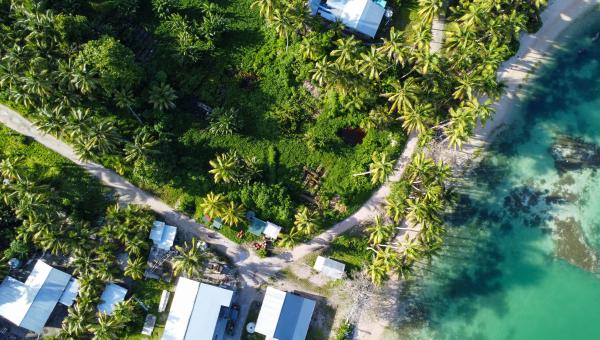Climate Security in the Pacific
Summary
The Climate Security in the Pacific project represents the first multi-country initiative of its kind in the region and proposes concrete assessment and actions at all levels to tackle climate-related security risks. Focusing on empowering low-lying atoll nations, in particular Tuvalu, the Republic of the Marshall Islands and Kiribati, the project addresses the security threats linked to climate change by strengthening the understanding, implementation and coordination of risk management strategies for key climate-related security risks.
Funded by the UN Secretary-General’s Peacebuilding Fund (PBF) – the UN’s financial instrument of first resort to sustain peace in countries and regions at risk or affected by security challenges, including caused by climate change – the project is implemented by the UN Development Programme (UNDP) and the International Organization for Migration (IOM) in partnership with the Governments of the three countries, which will also work in synergy with regional actors, including the Pacific Island Forum Secretariat (PIFS) and the Coalition of Low Lying Atoll Nations on Climate Change (CANCC).
What we do
Climate change represents an existential threat for Pacific people and indeed the very existence of many small and low-lying atoll nations. The project is taking decisive risk management actions to build resilience and secure a sustainable future. By implementing concrete climate actions, it helps set the direction to manage climate-related risks and strengthen the capacities of Pacific SIDS, at the same time supporting their governments to increase their advocacy and presenting climate change as the most significant security threat for the Pacific region in the global fora.
The project ensures that gender dimensions and the needs of vulnerable groups like women, disabled people, and youth are taking into consideration.
The initiative contributes to the achievement of Sustainable Development Goal (SDG) 13 on Climate Action and aligns with the Boe Declaration Action Plan.
At the end of the project, the following outcomes are expected:
- Empowering atoll states and regional actors in the Pacific to address climate-related security risks.
- Strengthening the overall understanding and risk management of critical climate-related security risks and challenges.
- Enhancing advocacy and related capacities of Pacific Island Nations to combat climate change, focusing on the climate impact on peace and human security.
What is climate-security?
Climate Security in the Pacific
While climate change does not cause violent conflict in and of itself, it can negatively impact peace and human security through its interaction with other social, political and economic factors.
In the Pacific, climate change has the potential for a myriad of climate-related security risks. These can affect men, women and youth differently, and vary across the region depending on the country contexts.
These wide range of risks, when not addressed properly and timely, can have a direct impact on human security.
Check out our publications to learn more!
Publication
Sustainable Development Goals



 Locations
Locations


